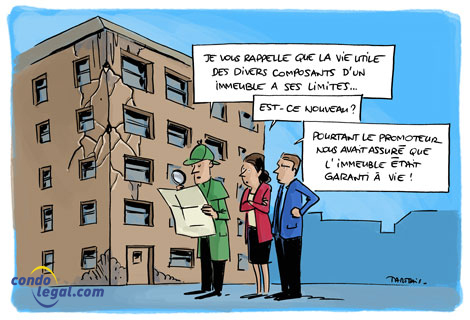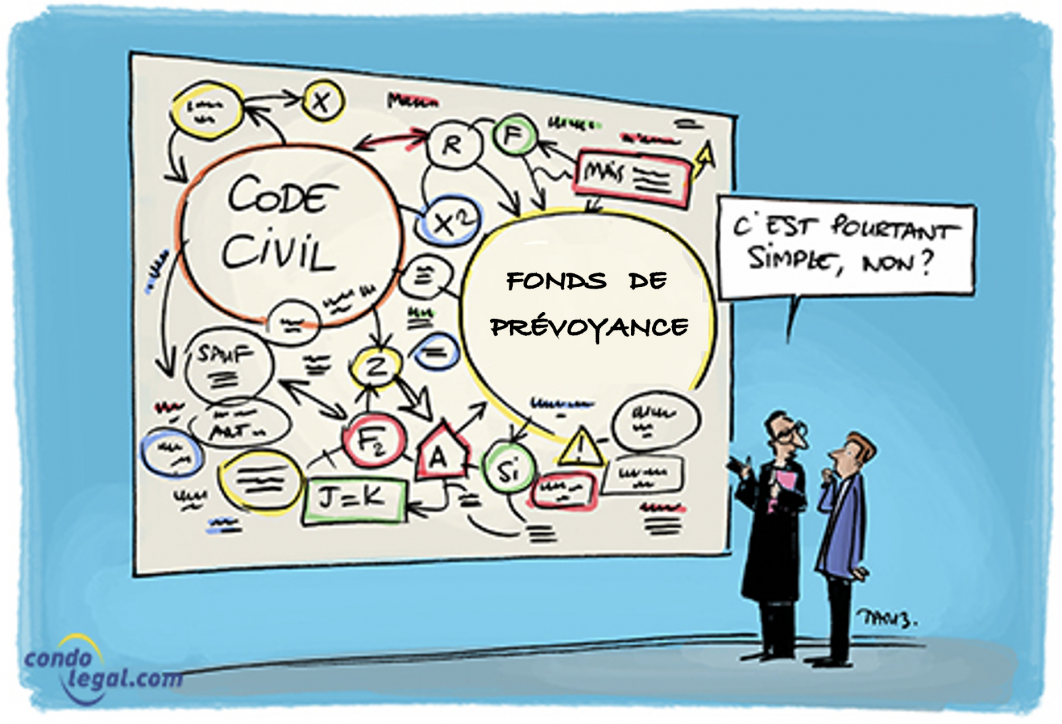Date published: 11/10/2024
When the dream of property ownership turns into a nightmare: Lessons from Florida for Quebec

The collapse of the Champlain Towers South in Surfside, Florida, on the night of June 24, 2021, tragically highlighted the importance of maintaining co-owned buildings and the necessity of enacting strict laws on contingency fund capitalization. This disaster, which claimed 98 lives, prompted Florida to adopt SB 4-D, a law that mandates inspections and the establishment of contingency funds for buildings over 30 years old. This legislation aims to prevent future catastrophes by ensuring rigorous monitoring of building conditions, thus protecting both the safety of residents and the longevity of real estate investments.
However, this new legislation imposes significant financial contributions on co-owners. These costs threaten to push some, like retirees Howard and Sheila Konetz, to the brink of bankruptcy, a situation thoroughly explained in the reference article linked to this news.
The legislative framework
This new law mandates inspections by an architect or engineer for all buildings of three stories or more, when they reach the age of 30 years (or 25 years if they are located less than three miles from the coastline), and every 10 years thereafter. The inspections required by this legislation are carried out in two phases. The first involves a visual assessment by a Florida-licensed architect or engineer to identify any "substantial structural deterioration." If issues are found, the second phase is triggered. This phase involves in-depth examination techniques, such as material testing, to assess the extent of the damage and plan necessary repairs.
Moreover, SB 4-D introduces the requirement to conduct contingency fund studies every ten years. These studies allow co-owner associations to evaluate the funds needed for major repairs and ensure they have sufficient financial reserves for long-term building maintenance and compliance. Associations must adhere to strict deadlines, including a first inspection by December 31, 2024, for existing buildings, and inspections when buildings reach 30 years or 25 years for those located less than three miles from the coastline.
Exorbitant costs for Florida co-owners
The 4-D law in Florida has introduced the obligation to fund major repairs often delayed for decades. In the case of the Konetz family, co-owners in Aventura, this obligation resulted in a bill of $224,000. For many retirees living on fixed incomes, this new law has turned their Florida dream into a financial nightmare. Potential buyers are now avoiding older buildings, and co-owners are struggling to sell. This phenomenon affects more than a million condos in Florida, where insurance premiums are rising, particularly due to increasingly frequent natural disasters.
The Quebec parallel: Similar Issues
Although Florida’s dramatic situation may seem distant, Quebec is not exempt from similar problems. The example of Faubourg Boisbriand, where more than 150 housing units were affected by major structural issues, shows that thousands of Quebec co-owners could see their life savings threatened by neglected structural defects. In response to these risks, Quebec has introduced legislative reforms, including Bill 16, which requires co-ownership syndicates to maintain a maintenance log and conduct contingency fund studies. These provisions aim to prevent dramatic situations like the one experienced in Boisbriand by ensuring regular maintenance of buildings.
Prevention to avoid the worst
The tragic collapse of the Champlain Tower in Surfside highlighted the importance of prevention in managing co-ownership properties, both in Florida and Quebec. At the heart of Quebec's divided co-ownership legislative reform is the requirement to keep a maintenance log and conduct a contingency fund study. This study helps anticipate and capitalize the necessary funds for future repairs, ensuring that co-owners have the financial resources to maintain their buildings in good condition. While these measures involve additional costs, they are essential to prevent disasters and guarantee both the safety of residents and the long-term value of real estate. By focusing on prevention, Quebec strives to avoid the repetition of tragic mistakes and to preserve the durability of its real estate assets.
Reference : La Presse, 7 octobre 2024, article de Julia Echikson, publié dans The New York Times.
 WHAT YOU SHOULD KNOW ! Florida is the state with the largest number of condominium housing units in the United States, with a total of 1 529 764 units. Of these units, 912,376 were built more than 30 years ago.
WHAT YOU SHOULD KNOW ! Florida is the state with the largest number of condominium housing units in the United States, with a total of 1 529 764 units. Of these units, 912,376 were built more than 30 years ago.




